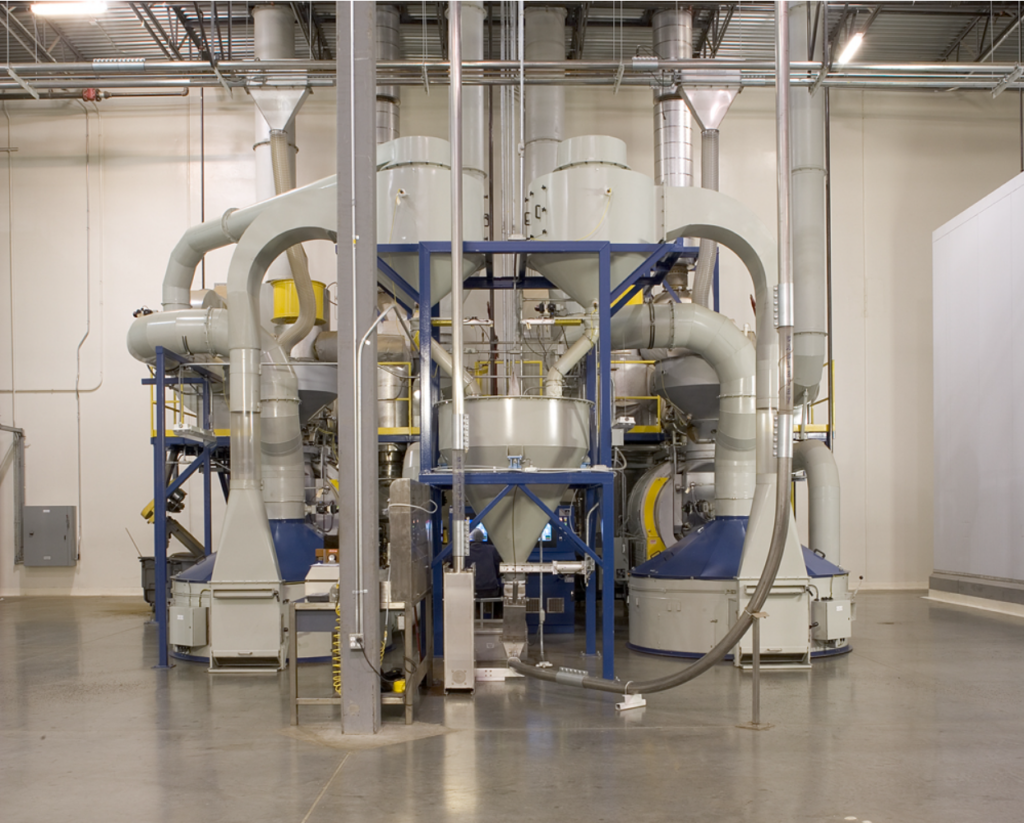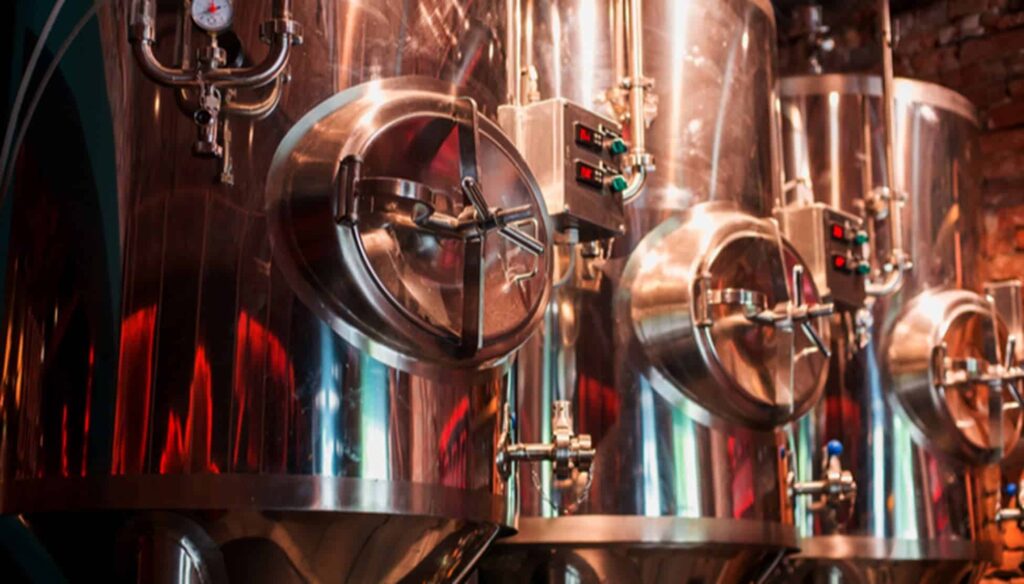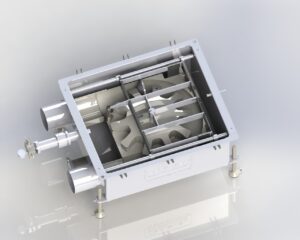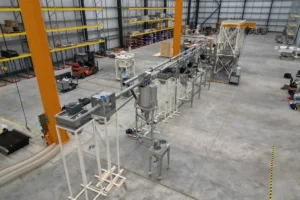Whether it’s controlling fermentation temperatures or ensuring consistent flavor profiles, modern beer brewing equipment plays a crucial role in crafting high-quality beer. From small-scale home setups to large commercial breweries, these advanced machines cater to a wide range of brewing needs. Explore the world of contemporary brewing technology and learn how it brought both efficiency and precision to the entire production process.
Drink as Old as Time – How Has the Beer Brewing Industry Changed Over the Years
Considering that beer is one of the oldest drinks ever produced (dating back to at least 3,000 years BC), it is understandable that beer brewing equipment and processes have changed over the centuries. In Ancient Mesopotamia, beer brewing and religion were closely intertwined, with beer requiring blessings from at least three separate deities before it could be enjoyed.
Needless to say, it’s nothing like that today – the global beer market rakes in hundreds of billions of dollars every year. About 60% of the market belongs to beer brewing giants such as AB InBev, which owns Budweiser, Corona, and Stella Artois. However, recently, craft breweries have gained a lot of popularity all across the world, standing tall against these corporate conglomerates and fighting for their revenue share.
Why Are Craft Beers Such a Trend Nowadays?
Craft beers are skyrocketing in popularity because of their unique take on the ever-popular beverage. The flavor of beer is no longer universal, with only slight differences between brands. No matter how big or small, each beer company has a signature taste it is proud to present to the public. Beer brewing has become an art form where everything needs to come together just the right way – the beer recipes, the conditions, and the equipment.
With microbreweries and brewpubs increasing in numbers, it is important to understand how the modern home brewing starter kits and beer brewing equipment operate and where beer brewing technology is heading. After all, beer innovation and refining your process are what will set you apart from your brewing competitors.

Technological Innovations in the Beer Brewing Process
In the 1980s, when the first independent breweries started setting up shop, they had to be creative when it came to their equipment. Sierra Nevada had to weld their brewing system and import parts from Germany, a beer haven that was much more technologically advanced at the time. Processing automation redefined the entire process of brewing commercial beer in the early days.
You probably can’t imagine brewing without remotely adjusting the crush of the grain during milling or setting the precise temperature of the mash tun (and perhaps even setting the rate of the temperature change during the mashing process). The automatic fermentation temperature control features that are taken for granted today have been the stuff of dreams in the early 90s. Here are some equipment innovations that have come to the scene recently.
Oil-Free Compressors
Compressed air has a multitude of purposes in a beer brewery – pushing fluids through pipes and tanks, modulating valves, providing energy for pneumatic transportation, and the keg systems washing process. Many breweries also use compressed air during canning.
An oil-contaminated compressor would be a liability in an environment as strictly regulated by quality and purity standards as a beer brewery. Many are now relying on oil-free compressors to keep products free of contamination. Their craft beers aren’t at risk of getting ruined by oil, and the air circulating through the brewery is pure – it’s no threat to the brewing process.
Mash Filter
A standard lauter tun takes advantage of gravity to separate the grain from the wort. On the other hand, a mash filter is all about pneumatics and pressure that squeezes the liquid wort from malted grains. The process takes place in 45 chambers, all of which are outfitted with a special membrane filter that ensures maximum separation.
The main benefit of mash filtration is that you can experiment with any type of grain, like rye, oats, or wheat. You no longer need to use malted barley to prevent gumming up the equipment. That being said, a downside of this filtration system is that it can be quite costly.
Precise CO2 Control
If you are still manually managing your CO2 cylinders in the brewing process, you likely know that this is quite an inefficient method. It is difficult to determine when a CO2 tank is empty. If you switch it out too soon, you’re wasting CO2. If you switch it out too late, it could under-carbonate your batch of beer.
The solution to this problem is a regulator and valve combination that fully automizes the CO2 distribution. An automated process provides you with insight into just how much CO2 you have in any given tank. It also speeds up the process, reduces manual labor, and reduces the potential for workplace accidents.
Compact Palletizer
If you have a limited budget or insufficient floor space for packaging, look into a compact palletizer, such as the one from A-B-C Packaging Machine Corporation. A compact palletizer takes up far less space than a standard palletizer, even if it is low-level. If you choose wisely, you can have complete control over the product feed and pallet configuration.
As with any other equipment in beer brewing, go for a fully automated conveyor system that will eliminate the risk of injury. Your workers will no longer have to perform repetitive actions when palletizing, which will significantly benefit their physical and mental health.
IO-Link Technology
If you’re running a relatively large business, you are likely faced with an automation-tracking overload. Your workers and managers are constantly carrying around electronic devices, looking at different interfaces, and keeping track of dozens of parameters across all the different platforms you have installed. Even with an automated conveyor system, you can have too much of a good thing.
IO-Link technology is stepping in to streamline this process. It is a globally standardized technology that allows easy point-to-point communication between sensors and actuators. All the data you’re gathering is centralized and can be adjusted in the blink of an eye without much fuss on the worker’s part.
Digital Beer Bottle Labels
When BrewEXPO America was postponed due to the COVID-19 pandemic, plenty of businesses didn’t get the chance to present their new solutions in the brewing and packaging processes. One of those businesses is Weber Packaging Solutions, a company that intended to showcase its most popular labeling system.
The labeler in question digitally prints labels in a wide variety of label materials. It can label anywhere between 30 and 35 cans per minute, and everything is easy to control through a one-touch screen. If you need a short-label run, like for your next experimental craft brew, the Weber company has printer options for that, too.
How to Have a Safer Workflow?
The beer you’re making is only as good as its ingredients. This saying is especially true when it comes to brewing grains. The conditions in every step of the process, from the grain mills to the mash tun to lautering, need to be set up in precisely the right way for maximum quality and consistency of the product.
One of the big questions is how to transport grain – which is undoubtedly a fragile material – with as little breakage as possible from one side of the brewery floor to another. And the answer is industrial conveyor systems.
Quality Conveyor Belt Systems Are the Answer
Cablevey Conveyors is a conveyor technologies manufacturer. It provides tubular conveyor solutions that are designed to handle fragile materials, such as barley and wheat, with maximum care. Grain materials are transported slowly and gently, reaching the mash tun precisely the size they need to be. There is little to no material waste, which is of key concern in craft breweries.
The Benefits of Cablevey’s Conveyor Solutions
The enclosed tubular conveying system that Cablevey Conveyors offers is essential for keeping your materials clean and safe. The clear tubes allow you to visually track the journey of your grain without worrying about what’s going on inside. Cablevey’s systems are ideal for moving both wet and dry materials in all steps of the brewing process.
Once you turn to Cablevey’s custom solutions, you’ll realize there is no space too small or corner too tight to fit in a transport system that suits your brewery perfectly. Conveyor systems are not only effective for preserving the shape and size of the grain – this type of automation means less manual labor is required.
Workers are no longer hauling grain by hand or heavy machinery around the brewery, resulting in less risk of injury, higher efficiency, and a safer, more convenient workflow. A robust, reliable conveyor system will ensure that your brewery operates without a hitch while prioritizing your workers’ health.

Contact Cablevey Conveyors for the Best Conveyor Engineering – Let Us Help Improve Your Production Process
Contact Cablevey Conveyors for unparalleled expertise in conveyor technologies and take a significant step toward enhancing your production process. Our team is dedicated to providing tailored solutions that align perfectly with your specific operational needs. With a deep understanding of various industries, we specialize in designing and manufacturing industrial conveyor systems that are not only efficient and reliable but also gentle on your products.
Whether you’re brewing beer or participating in another aspect of the food processing industry, our tubular disc and cable conveyors can help you. These tailored conveyor solutions can ensure minimal breakage and contamination, optimizing your production line’s effectiveness. Contact us and let our experienced professionals assist in refining your processes with our state-of-the-art conveyor engineering. Discover how Cablevey Conveyors can transform your production efficiency and quality, making us your go-to partner in conveyor engineering solutions!
FAQ
What Are the Key Features of Modern Beer Brewing Equipment?
Modern beer brewing equipment incorporates advanced technology to enhance efficiency and precision. It caters to different scales, from small home setups to large breweries, and focuses on essential aspects like fermentation temperature control and flavor consistency. This equipment is vital in producing high-quality beer.
How Has Beer Brewing Changed Over the Years?
Beer brewing has evolved significantly from ancient times. Initially intertwined with religion, it’s now a major global industry dominated by large corporations and increasingly popular craft breweries. These changes reflect advancements in brewing equipment and processes, moving from traditional methods to more sophisticated, technology-driven approaches.
Why Are Craft Beers Gaining Popularity?
Craft beers have surged in popularity due to their unique flavors and artisanal quality. Unlike mass-produced beers, craft beers offer diverse tastes and are often considered an art form. This trend is driven by consumers’ desire for variety and the personalized touch that craft breweries provide.
What Technological Innovations Have Been Made in Beer Brewing Equipment?
Beer brewing technology has seen significant advancements, including oil-free compressors for contamination-free brewing, mash filters for efficient separation, precise CO2 control systems, compact palletizers for space-efficient packaging, IO-Link technology for streamlined automation, and digital beer bottle labeling for versatility in packaging.
How Can Breweries Ensure a Safer and More Efficient Workflow?
A safer and more efficient workflow in breweries can be achieved by using quality conveyor systems. Cablevey Conveyors offers conveyor solutions that handle fragile materials like grains gently, reducing waste and ensuring cleanliness. These systems facilitate a safer work environment by minimizing manual labor and the risk of injury, thereby enhancing overall efficiency.






